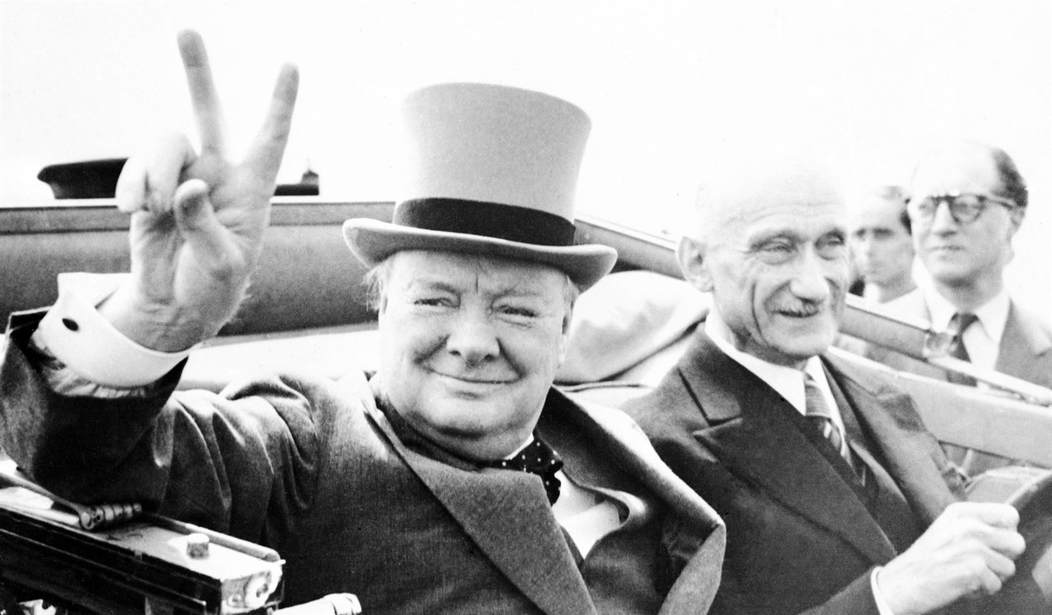Winston Churchill is believed to have said, “If you are not a liberal at 25, you have no heart. If you are not a conservative at 35 you have no brain.” The quote is accurate, but Churchill wasn’t the first to express those sentiments. A French academic jurist, Anselme Polycarpe Batbie, in the 19th century, said, “He who is not a républicain at twenty compels one to doubt the generosity of his heart; but he who, after thirty, persists, compels one to doubt the soundness of his mind.”
Batbie was no Churchill, and the Great Man’s interpretation of the Frenchmen’s observations were, as befitting the most renowned English language dialectician who ever lived, more succinct and to the point than anyone else’s.
Now, the left will trot out all sorts of graphs and charts to try and disprove the fact that the older a voter gets, the more conservative their politics. In truth, it’s just a smokescreen. The real “proof” is at the ballot box, and recent U.S. elections show Churchill to be a truth-sayer.
The New York Times’ premiere numbers guy Nate Cohn:
Fifteen years ago, a new generation of young voters propelled Barack Obama to a decisive victory that augured a new era of Democratic dominance.
Fifteen years later, those once young voters aren’t so young — and aren’t quite so Democratic.
In the 2020 presidential election, voters who were 18 to 29 in 2008 backed Joe Biden by 55 percent to 43 percent, according to our estimates, a margin roughly half that of Mr. Obama’s 12 years earlier.
The exit polls show it even closer, with Mr. Biden winning by just 51-45 among voters who were 18 to 27 in 2008 (exit polls report results among those 30 to 39, not 30 to 41 — the group that was 18 to 29 in 2008).
And last fall, the young voters of ’08 — who were then 32 to 43 — preferred Democratic congressional candidates by just 10 points in Times/Siena polling.
“Over the last decade, almost every cohort of voters under 50 has shifted toward the right, based on an analysis of thousands of survey interviews archived at the Roper Center,” according to Cohn.
But there’s been pushback from the left trying to prove that this time, it’s different. The Financial Times, for instance, wrote that “millennials are shattering the oldest rule in politics” by not moving to the right as they get older. Similarly, the Democratic data firm Catalist found that Democrats essentially haven’t lost ground among millennials and Gen Z over the last decade.
But Cohn points out that a different story emerges if you track the same voters over time. “The millennials of 2008 are not the same as those of 2016, for instance.,” writes Cohn. There were six years of even more heavily Democratic millennials becoming eligible to vote after the 2008 election. This has temporarily canceled out the slight Republican shift among older millennials.
The shift to the right appears largest among the oldest “young” voters — the older millennials who came of age in a very different political era from today. Many of the issues that drew young voters to the Democrats in 2004 or 2008 — like the Iraq War or same-sex marriage — may no longer be issues at all. Republicans may have even reversed their former disadvantage on some issues, whether by sometimes opposing foreign intervention, winning some voters with colorblind messaging on race, or by becoming the “anti-establishment” party.
In contrast, the shift to the right is more modest among younger voters — especially those who came of age after Mr. Obama, in the era of Black Lives Matter, the Bernie Sanders campaign and Donald J. Trump. Today’s politics are still defined by mostly the same issues that brought these voters to the Democrats. As long as that’s true, they may well remain by their side.
There are many different theories for why older voters appear to back more conservative candidates. In truth, the difference in support for the two parties isn’t as big for voters in their 30s and 40s as it is for voters in their 60s.
Democrats continue to claim the “Progressive Era” is upon us — just as they’ve been saying since the 1960s. In fact, as election results tell us, no such thing is happening, and the only question will be, is 2024 or 2028 to be the election that cements conservative governance for the next generation?










Join the conversation as a VIP Member